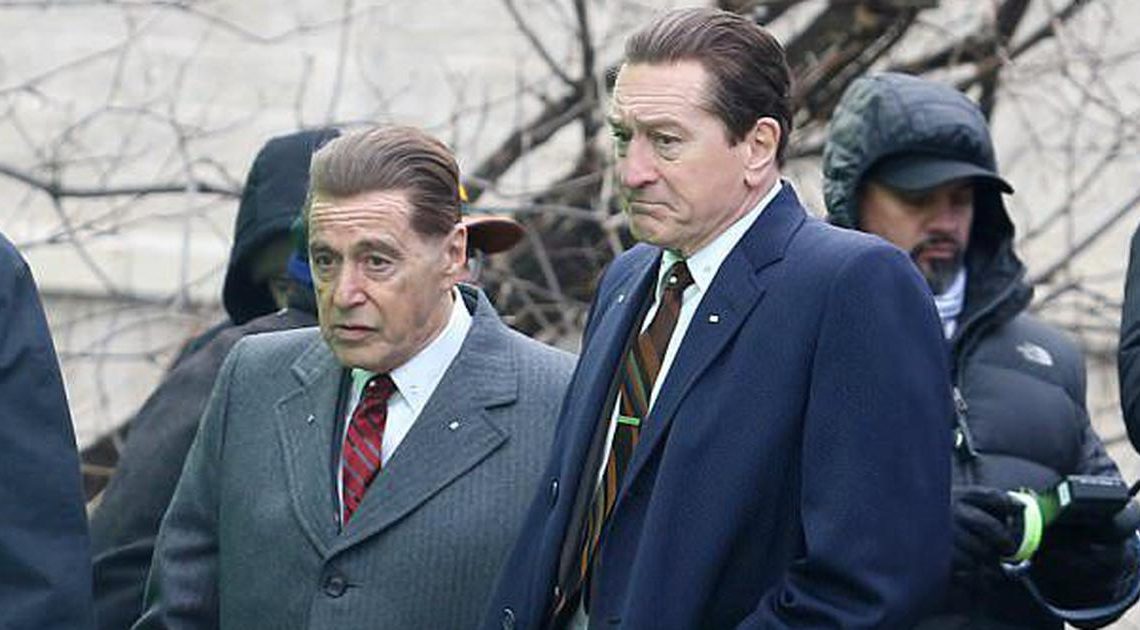Tropic Sprockets / The 2019 Key West Film Festival
By Ian Brockway
The 2019 Key West Film Festival (in addition to some eerie star-power with this year’s Golden Key recipient Tom Skerritt) was rife with human emotion from the sublime to the savage. For the absentees among us, here are some films you may have missed.
Scorsese’s “The Irishman” is a grand call to the past in cinema and life. The restaurants are enclaves of dimly lit secrets. The cars are huge. The food portions are big and sloppy and the rotary phones are extra-long and snaky.
The scenes of young De Niro and Joe Pesci can be seen as responses to The Marvel Cinema Franchise, in effect affirming that De Niro and Pesci as old school actors can achieve immortal status without explosions or CGI shape-shifting effects. Every scene is built organically through deliberate and circular dialogue, as a tease, boldly emphasizing gesture and facial expression and is a rebuke to the strobing hyperactive realm of the Marvel films.
Frank (De Niro) is a sociopath and a family man whose murderous social ladder is hallmarked by the tomato sauce of family dinners. This carnage is not because of any theological or metaphysical sense of evil, but mere urban survival. Even Jimmy Hoffa (Al Pacino) who never fires a gun in the film, treats the erasure of human life as if he is ordering off a menu at his favorite steakhouse. The raspberry sauce that tops his ice cream sundae runs with blood.
Every passage in the film from Nixon to Kennedy and Hoffa is highlighted by retaliation, killing and hired hits. The people depicted in the film are fat, ripe and carnivorous, sour fruit grown human with scheming eyes.
In a Scorsese film, to be a success is to murder when necessary. “The Irishman” is another expression of the sociopathology of American Life. [Note: This film opens for a regular run at the Tropic on Wednesday, Nov. 27]
Noah Baumbach’s “A Marriage Story” is a study of a relationship with its naturalistic ebb and flow. Charlie (Adam Driver) and Nicole (Scarlett Johansson) clearly love each other but the couple is driven to hurtful petty actions by their own egotistical impulses, together with a trio of predatory lawyers (headed by Laura Dern) consumed by the concept of winning cases. Raw, immersive in detail and anxiety-making, Driver and Johansson are perfect in their roles. As a millennial version of “Kramer vs. Kramer,” “A Marriage story” is among the best of the year.
“Mapplethorpe,” a biopic by noted documentarian Ondi Timoner, is an impressionistic look at Robert Mapplethorpe’s life and his friendship with Patti Smith. By using Super 8 photography the audience is an insectile passenger in the day to day life of Mapplethorpe (Matt Smith) As a young boy we see him fuse the imagery of the Catholic church with S&M leather. Later in New York City, he meets the risky rocker Smith (Marianne Rendon) and the two become kindred spirits. To its credit, the film does not shy away from the sinister. Mapplethorpe (Matt Smith) becomes a black leather vampire bat. Driven to get either the perfect outrageous picture or the most orgasmic sight. Though the film shows the artist eaten up by base selfishness near his end, it also portrays him as somewhat shy and voyeuristic. Mapplethorpe is an insular portrait of a controversial icon and a perpetually creative person.
“Whistlers” by Corneliu Porumboiu is a noirish absurdist tale of Cristi (Vlad Ivanov) a hum-drum cop caught between stolen money and guns. Cristi wants to do the right thing and take the correct action but events spiral out of his grasp. To uncover the actual crook, he learns to communicate in a covert kind of whistle code that is made of nonsense, without rule or order. In slow deliberate episodes, Cristi realizes that he is disposable, a mere cog in a plan that he cannot discern.
“Atlantics” by Matie Diop is a genuine surprise. Ada (Mame Bineta Sane) is a young girl from Dakar. Although engaged by arranged marriage, Ada falls in love with the handsome Romeo-like Sulieman (Ibrahima Traore) a fisherman who goes missing and vanishes in a stormy sea. Ada, although married and living in an opulent mansion, is crushed. She stops eating. Then there are several inexplicable fires that occur in the house combined with odd supernatural illnesses that afflict Ada’s girlfriends. In addition, the investigator becomes stricken by a strange fainting spell whenever he is under stress. Part social commentary and part horror film with twists of magic realism, this is a film that resists any definition. With elements of William Friedkin to Jordan Peele’s “Us,” “Atlantics” has an odd enigmatic power. The film holds one from the very start, and you’ll never know what to expect.
“Bacarau” (from directors Kleber Mendonça Filho and Juliano Dornelles), top winner in the KWFF foreign film category, also defies convention. Set in Brazil in a village that doesn’t exist in the eyes of Anglos, the film is a detailed look of indigenous life, ridiculed, disrespected and under threat of genocide. The people in the small village are frequently without power or water. The town is under the infantile whim of a baby faced politician Tony Jr. (Thardelly Lima). Barcarau is a proud town with an individualist history but nothing grows there except some deadly cacti with shark’s teeth. Abruptly a spaceship appears with some neon clad tourists. Gory trouble ensues. Warhol film star Udo Keir co-stars as an aging, existential Anglo-Saxon egotist with a high powered space gun in what may be his most nuanced performance. “Bacarau” is another wondrous genre-shifting film about revenge and the toxicity of Western entitlement.
With a run of solid films highlighting the shadow side of the human condition, this year’s Key West film festival was rich with pathos and psychological impact, enhancing Key West as a cultural landmark yet again.
Write Ian at [email protected]
[livemarket market_name="KONK Life LiveMarket" limit=3 category=“” show_signup=0 show_more=0]



No Comment